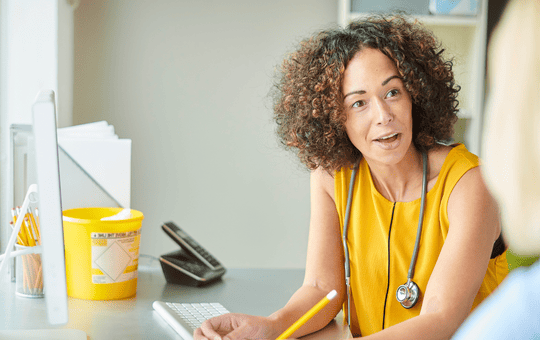Chlamydia Testing
Chlamydia is the most common STI in the UK. While chlamydia is fairly harmless in its early stages, if left untreated, it can lead to more serious health problems such as infertility, ectopic pregnancy, chronic pain and arthritis.
Detection can be tricky as many infected people don’t have any symptoms. This is why it is essential to get regular sexual health check-ups, even if you don’t have symptoms.
Testing is quick and easy and all our sexual health services are discreet and completely confidential. If you require treatment, we can dispense medications from our on-site pharmacy, so that you can start treatment immediately, reducing your risk of more serious long-term complications of chlamydia.
One of our friendly and experienced professionals can discuss any concerns you may have and provide you with information and advice surrounding chlamydia testing and treatment.
When can I be tested for chlamydia?
It is recommended that testing for chlamydia is done at least 14 days after last known exposure.
This is because it can take up to 14 days for the infection to be detectable.
We advise that those with symptoms of chlamydia attend an appointment with a GP sooner.
How do I book an appointment?
If you have symptoms, please book a symptomatic appointment with a GP.
If you do not have symptoms, please book an asymptomatic appointment with a nurse.
How long will it take to receive my results?
Results are available within 2 hours.
If you test positive, chlamydia is treated with antibiotics. We are able to dispense these antibiotics to you from the clinic.
What is Chlamydia?
An infection with Chlamydia trachomatis
Chlamydia is an infection with Chlamydia trachomatis bacteria, which is usually caught from having sex with someone who is infected. Left untreated, chlamydia can cause long-term complications, including pelvic inflammatory disease, tubal infertility and ectopic pregnancy.
Chlamydia is the most common STI in the UK.
How is chlamydia spread?
Chlamydia spreads through contact with infected genital fluids (semen and vaginal secretions).
These fluids can be transmitted by vaginal, anal and oral sex, touching genitals and sharing sex toys. An infected mother can also transmit the infection to her baby during pregnancy.
What are the symptoms of Chlamydia?
Chlamydia is often symptomless
Symptoms in women can include vaginal discharge, bleeding between periods or after sex, pain/burning during urination, and lower abdominal pain.
Symptoms in men include urethral discharge and pain/burning during urination.
However, many people infected with chlamydia will have no symptoms and therefore be unaware that they have the infection, which is why testing is so important.
FAQs
If you think you have been exposed to chlamydia you should book an appointment to have a chlamydia test. If you are asymptomatic, this will be with a nurse, and it would be best to wait at least 14 days after the last exposure before being tested. If you are displaying symptoms this needs to be with a doctor who can assess your symptoms and recommend treatment. It is also important that you abstain from sexual contact with anybody else until you have been tested and treated.
Yes. Chlamydia can be effectively treated with a course of antibiotics.
The only way to fully ensure you don’t catch chlamydia is by abstaining from sexual contact completely. However, we know that for most people this isn’t realistic. To best prevent contracting chlamydia, you should always use a condom every time you engage in sexual activity (vaginal, anal and oral sex), get tested regularly for chlamydia, chose less risky sexual behaviours and limit your number of sexual partners.
Absolutely. Getting tested for chlamydia is recommended during pregnancy because infection can be transmitted from mother to baby during pregnancy. It is easily treated with antibiotics. If left untreated, chlamydia can cause eye and lung infections in newborn babies.
Yes. It’s completely fine and normal to get tested for chlamydia at any point during your menstrual cycle, and having your period will not affect the results in any way.
Symptoms of UTIs and chlamydia can easily overlap, which is why it is important to book an appointment with a GP who can test for both chlamydia and UTI, in order to establish a proper diagnosis and provide you with the appropriate treatment.
Yes. Even if you have previously tested positive and have been successfully treated, you can catch chlamydia again. It is, therefore, important to always use a condom during sexual activity to protect yourself from becoming infected, as well as getting regular tests.
You should wait at least 7 days after been fully completing your treatment before you have sex again. You can catch chlamydia again, so it is important that any infected partners also wait until 7 days after they have finished treatment.
If left untreated chlamydia can cause pelvic inflammatory disease which can result in permanent damage to a woman’s reproductive system, which is not only very painful but also makes it difficult or even impossible to get pregnant.




